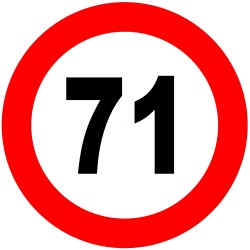Recently the list of the 100 best jobs was published for this year, and HR was again on the list. This time it ranked number 71 out of 100. It’s always fun to look at these lists to see how they compare, because we all want to think we’re working in a field that others see as important and valuable. It’s difficult to do that in HR, because many people have never run across someone working in human resources that truly cared about their wellbeing and success.
 So, what were some of the 70 jobs that beat it out?
So, what were some of the 70 jobs that beat it out?
Jobs that are (supposedly) better than HR
Accountant. (Even during tax time, this somehow managed to beat HR?)
Meeting planner. (I thought planning events was an HR function…)
Compliance officer. (Ditto-doesn’t HR do compliance? Also, how in the world is compliance better than human resources?!?)
Bill collector. (Wow. Calling people to harass them about money they owe is better? Really? Now we’re just getting ridiculous.)
How to get an HR job
From the article:
If Segal was hiring a new specialist, she says she would consider “someone who is smart, understands that HR is part of the management function, has business savvy and a keen analytical mind.†Like other areas of business, HR focuses on innovation and return on investment, she says. “HR needs creative, innovative thinkers to take us past the traditional paper processing and compliance focus to show our value and ROI in the global economy in new ways,†she says. In addition to having fresh ideas, Segal says you must demonstrate good writing skills, be able to work with financial data and have a solid understanding of your industry. “Being in HR in a startup tech company is not the same as being in HR in a bank or a manufacturing company or in the entertainment industry,†she says. “While there is some obvious overlap, if you want to be truly effective, be seen as more than a paper pusher and have a seat at the table, you need to show that you understand the business you’re in and how HR can support the bottom line.â€
I agree with some of this for sure, but it’s also funny to see that some of these comments still don’t align with how a large portion of the HR population works and thinks even today. Many of those in this profession don’t put any stock in reviewing/analyzing financial data or even having a firm understanding of their industry. They are content to make policies, fight to keep fun out of the workplace, and collect a paycheck until they retire. It’s why blogs like this one have become so popular–because people like you realize that there is more to this profession than what we were told when we started. There’s certainly more to life (and HR) than what meets the eye.
More on breaking into HR, for those who are interested. Also, if you want to check it out, the US News article is here, and you can learn about all kinds of other positions, including finance jobs, banking jobs, and more.
What are your thoughts? Is this job better or worse than the ranking they assigned? Why?
Leave a Reply
You must be logged in to post a comment.